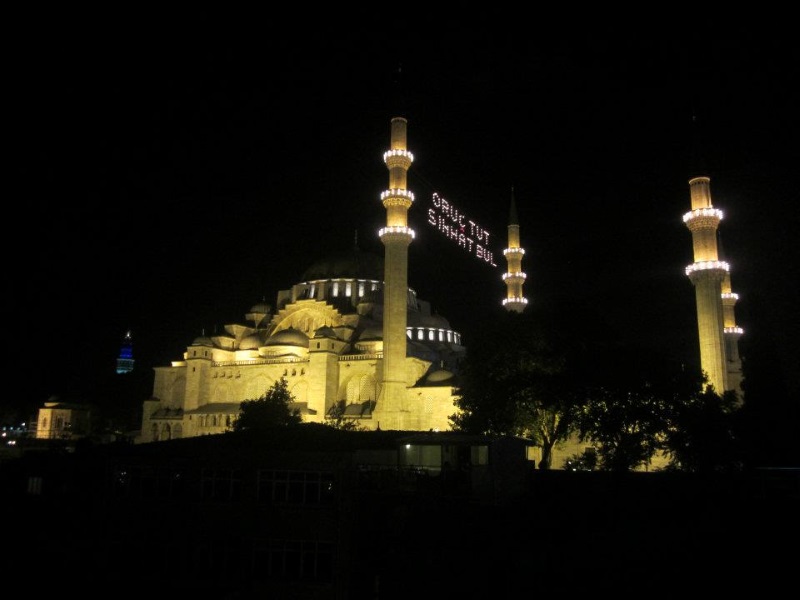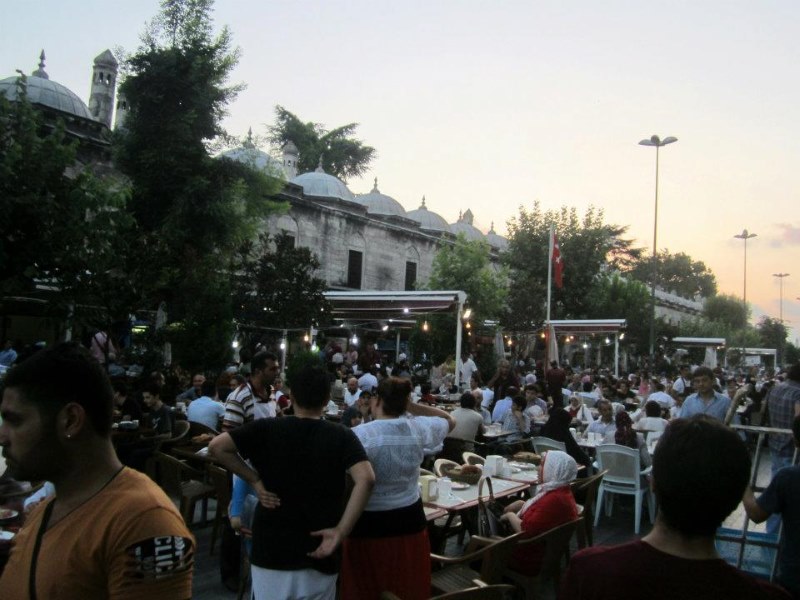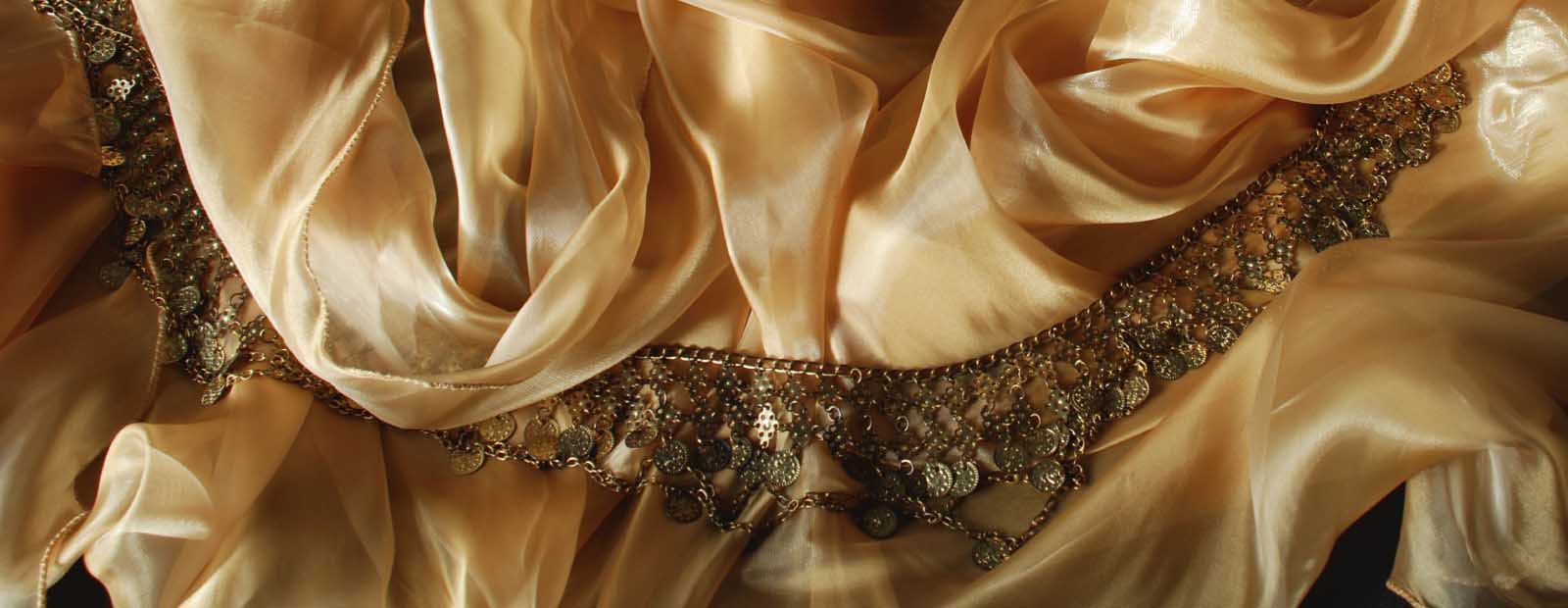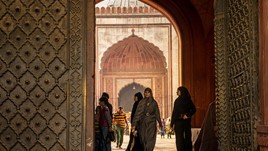
By Amanda Jurden
Travel Writer30 Nov 2020 - 5 Minute Read
Note: This story was written about a trip that took place before the COVID-19 pandemic.
“What do you know about Ramadan?” Hamza’s dark eyes are alight with curiosity.
“Not much,” I concede, slightly embarrassed by my ignorance of Islamic customs, “I know it’s a religious holiday that requires a lot of fasting.”
“Ah,” he nods, “Yes, this is true. We fast from food and water for a month from sunup to sundown.”
“From water, too?” I am incredulous.
He nods again, an almost imperceptible smile playing on his lips.
But it’s hotter than hell outside! I think. Dehydration is not a good idea.
I know my face betrays my thoughts, since Hamza asks, “You think this is crazy?”
“Maybe a little,” I smile sheepishly.
“It’s okay,” he shrugs. And I don’t know if he means fasting or me thinking it’s crazy.
Hamza patiently guides me through sweltering Istanbul. We ferry across the Bosporus, and amiably amble through the winding streets, and incessant heat. He displays no irritation when I stop to drink, or eat, or browse through the silky headscarves and long, flowy dresses adorning the streetside shops and stalls.
Once or twice, he leaves me to my own devices, assuring, “I’ll be back soon,” as he completes his daily prayers at the nearest mosque.
What’s that like? I wonder. To have such a strong devotion to prayer, to fasting, to ritual, to faith? And why? I would almost certainly abandon fasting around 11:00 am, the time my stomach starts indignantly roaring when I skip breakfast.
He pauses briefly, then asks, “If you don’t have evening plans, would you like to break fast with me?
The afternoon fades with the sun. The air cools enough to make breathing easier again, and shadows elongate as dusk and sunset approach.
“Well, Hazma,” I say reluctantly, thinking the time has come to part, “Thank you for showing me your city.”
“You’re welcome,” he smiles, white pearls gleaming against tan skin. “My pleasure.” His precise, proper English glides through the space between us. He pauses briefly, then, “If you don’t have evening plans, would you like to break fast with me?”
“Really?” I am surprised to be invited, only having met him today. I am also surprised by my immediate affirmation, “Yes, thank you! That’d be great.”
A slow, radiant smile lights his face. “Then let’s go!” He cocks his head to the left, indicating I should once again follow him through the still bustling city. Not everyone in Istanbul is a devoted Muslim, but those who are move purposefully through the streets to reach their evening iftar, the ritual breaking of the Ramadan fast.
Without knowing where we are heading, I somehow know we are approaching our destination. The butterflies in my stomach flutter softly, heralding the arrival of apprehension and doubt. How out of place will I feel? I worry. Maybe I shouldn’t have said yes. Then, as we turn the corner of the Süleymaniye Mosque – its soaring, slender, blue-grey-topped minarets reminiscent of Disney World’s castle – the azure sky slowly melts into a flood of scarlet, peach, rose, orange and gold.

My breath catches at the intense beauty of the sunset and the scene before me. Hundreds of Muslims, ensconced under the stately protection of the mosque, sit expectantly at wooden tables lining the courtyard and streets. They calmly wait for the soft glow of twilight and the second-to-last call to prayer, signaling the end of their seventeen-hour fast.
A few of Hamza’s friends stand to greet him with smiles and handshakes. They warmly welcome me, too, and we take a seat at the table, heavily laden with towel-covered baskets and bowls.
As the first notes of the hauntingly beautiful call to prayer resound across the city, a chill rolls up my spine. Everyone in the square collectively pauses, listening in silence, connected in prayer, in ritual, in the final moments of their fast.
The last note ebbs and vanishes into the night. All is still.

Suddenly, strings of lights outlining the mosque blaze to life, and the spell is broken. My tablemates hungrily open their water jugs, rapidly gulping to slake their aching thirst. When throats are no longer parched, we feast – digging into mounds of bread, salad, beans, rice, and lentil soup. There is laughter; there is singing; there is rich conversation; there is joy.
This, I think, this is why.
This story was a shortlisted entry in the World Nomads Travel Writing Scholarship 2020.
Discover similar stories in
connection
Travel Writer
Ohio-born and raised, Amanda's adventures include studying in Spain, exploring peace and reconciliation in Northern Ireland, and voyaging with Semester-at-Sea.



3 Comments
One slight mistake I'd like to highlight is that magrib, which is the when Muslims break their fast, is the second last prayer of the day. The final prayer of the day, which precedes tarawih, is 'Isha.
Thanks for pointing that out - we've made a correction.
I worked with a lot of devout Muslims
on the night shift,I had trouble dragging
them away from their heavy laden tables.
Sometimes they bring me plates
in the office-AH,good old days.